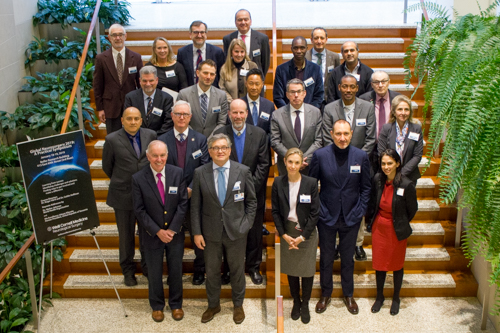
Neurosurgeons from North America, South America, Europe, Asia, and Africa converged on Weill Cornell Medicine last week for the very first Global Neurosurgery: A Practical Symposium. This course aimed to connect neurosurgeons, other physicians, and health policy leaders in Global Health Initiatives in Neurosurgery.
Attendees identified population-based needs in different regions, and assessed mechanisms of current successes and barriers. These experiences and different perspectives were used to form a strategy for improving global health in neurosurgery and developing metrics to assess success. Highlights included presentations from Dr. Walter Johnson, head of the World Health Organization’s Emergency and Essential Surgical Care effort, Dr. Daniel Fitzgerald, Director of the Center for Global Health at Weill Cornell Medicine, and a roster of internationally renowned global neurosurgery experts that included Dr. Kee Park, Dr. Barth Green, and Dr. Gail Rousseau (see complete list below). Dr. Walter Jean made his presentation via live stream from Hanoi, where he was concluding his most recent training trip.
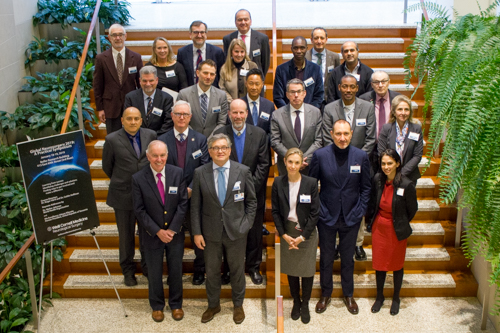
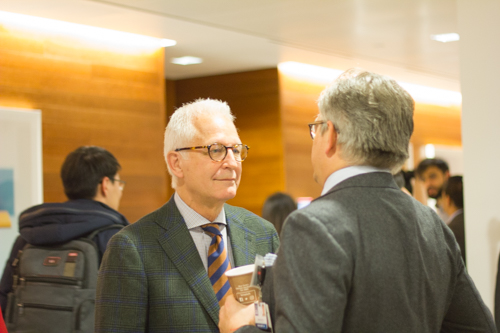
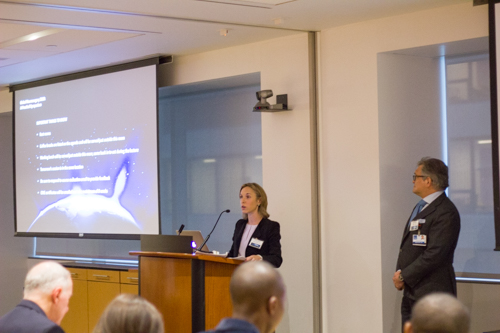
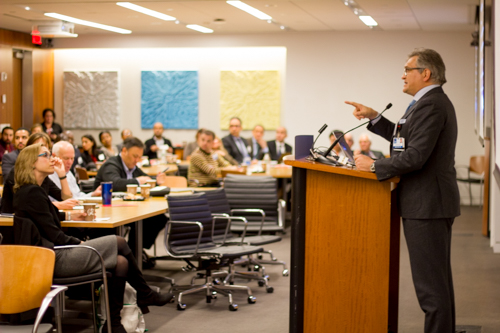
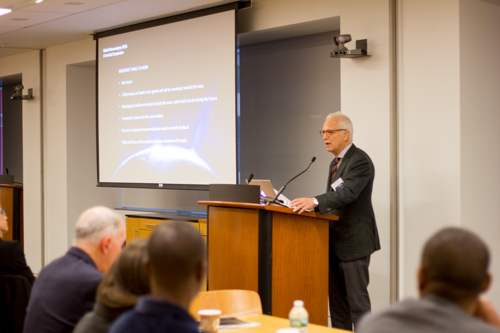
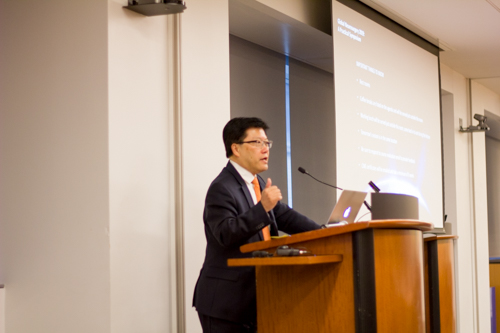
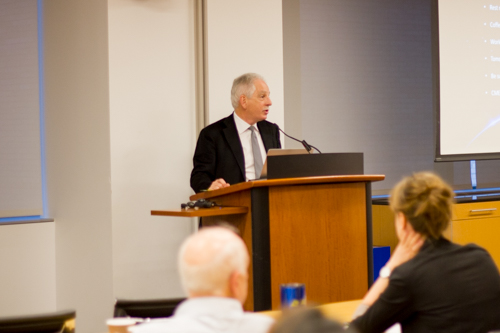
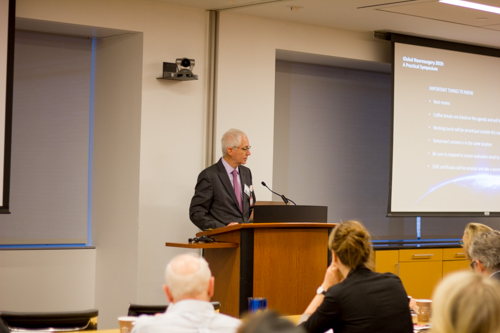
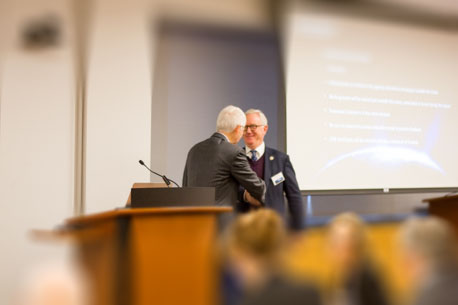
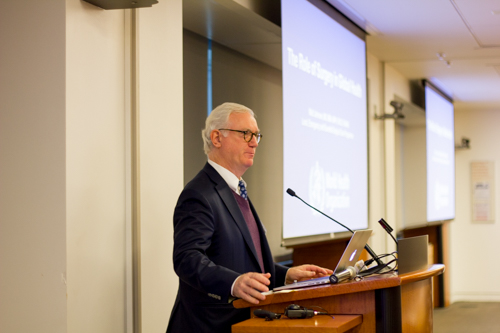
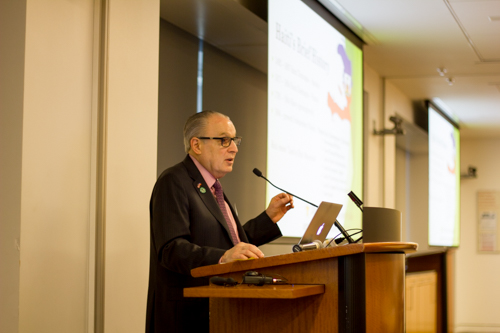
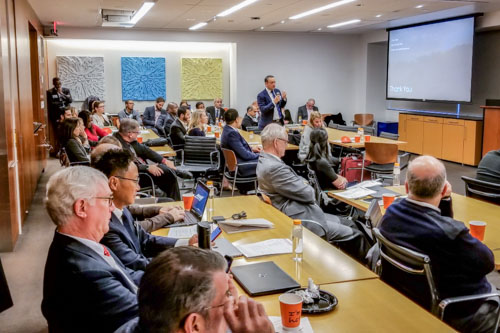
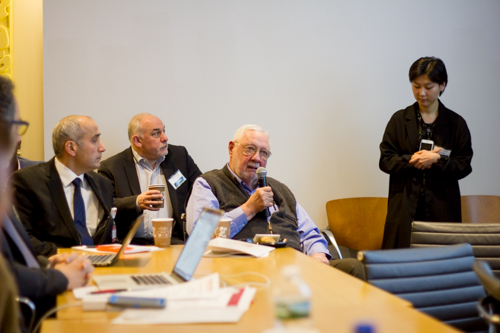
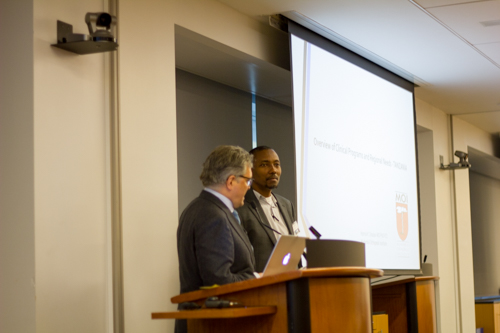
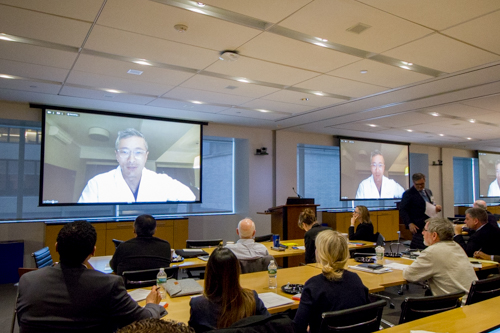
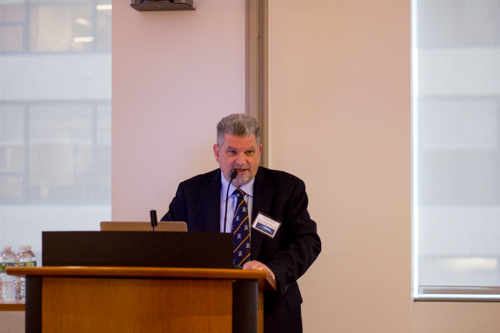
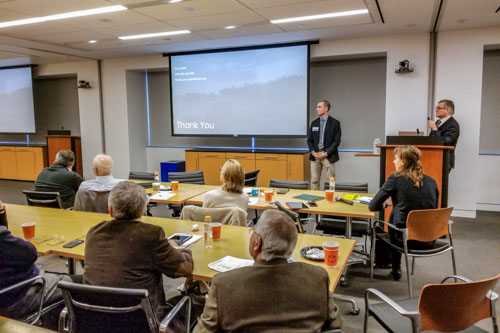
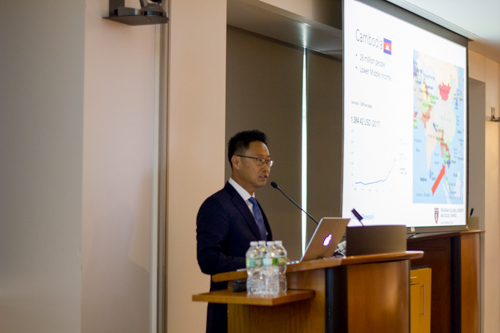
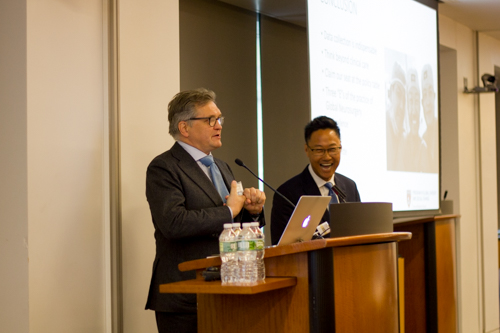
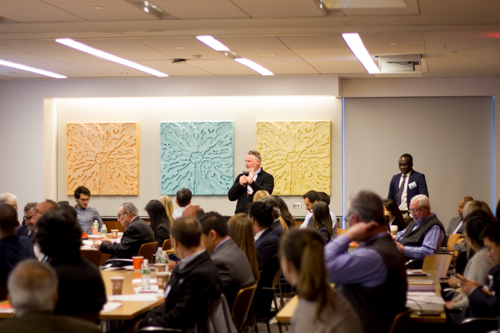
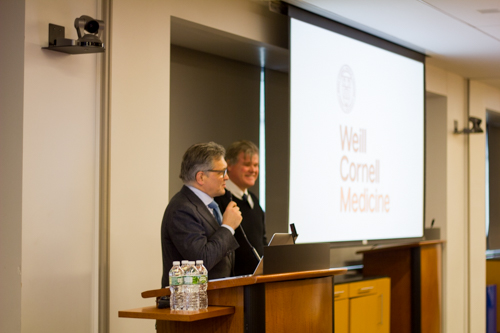
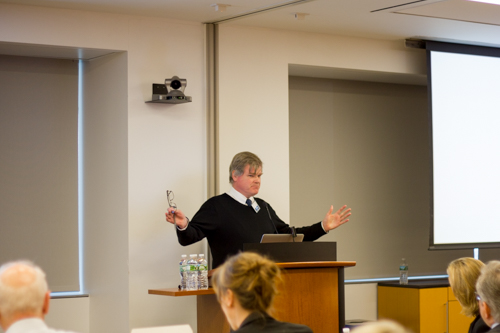
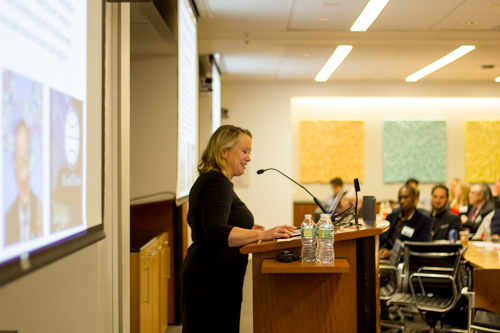
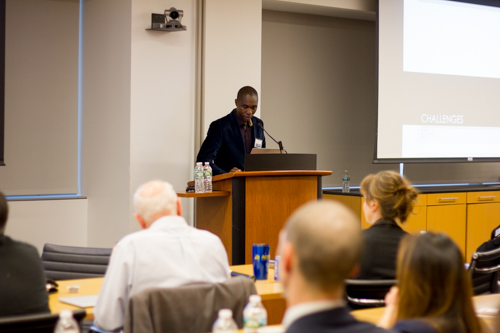
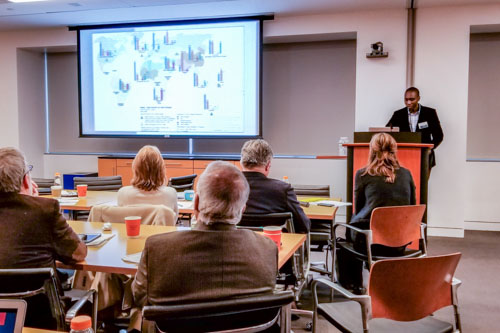
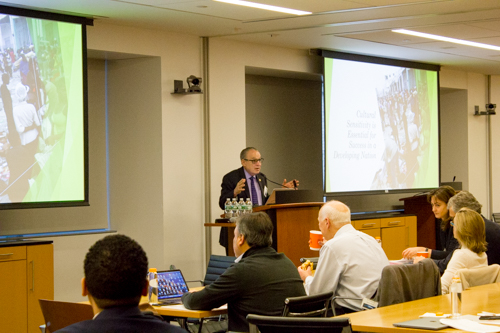
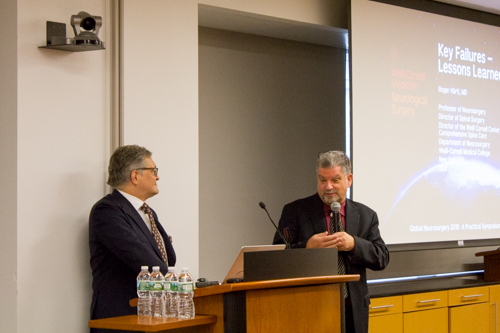
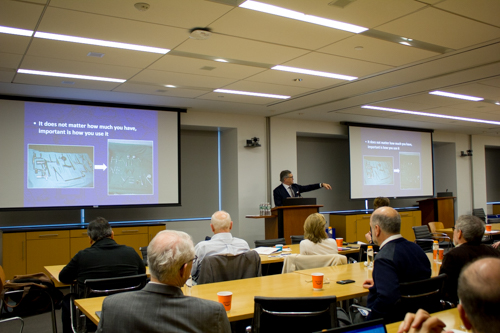
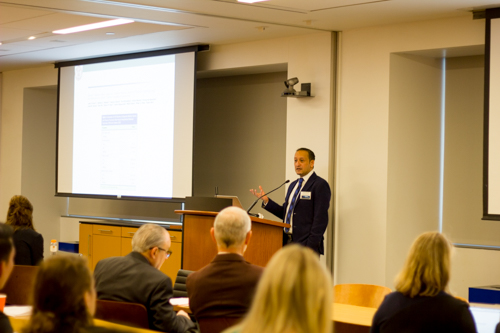
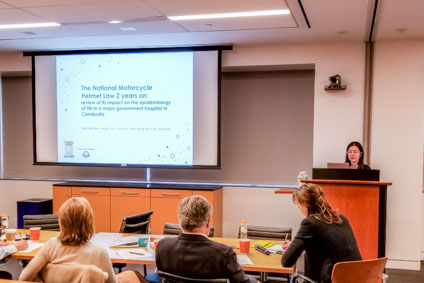
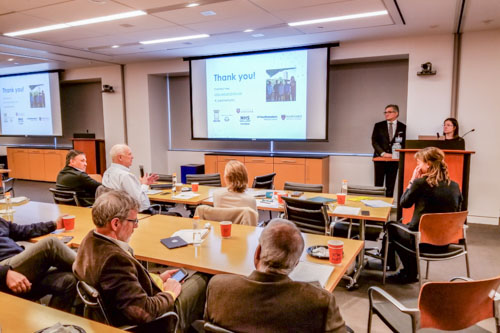
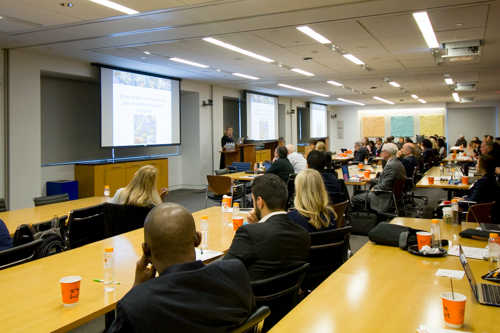
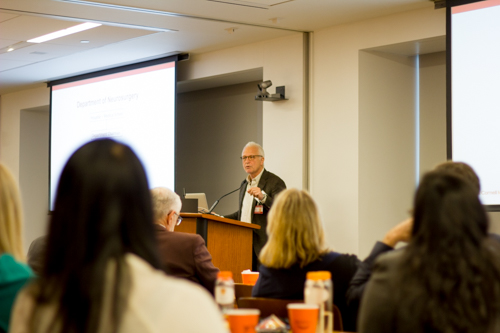
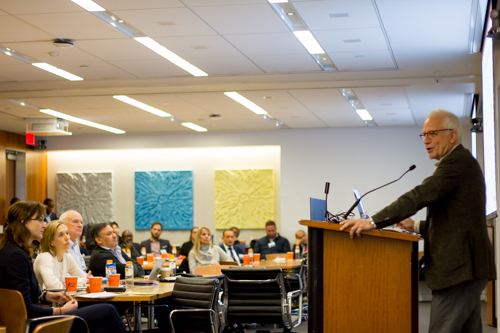
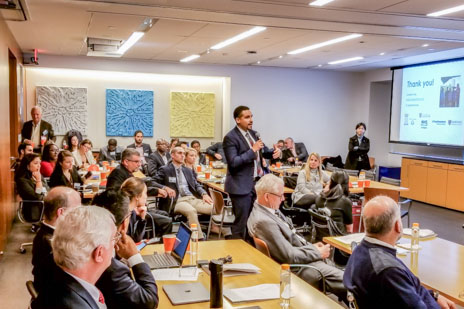
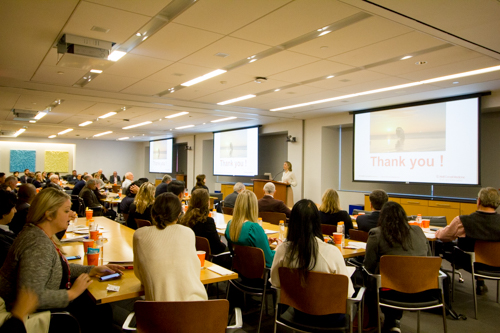
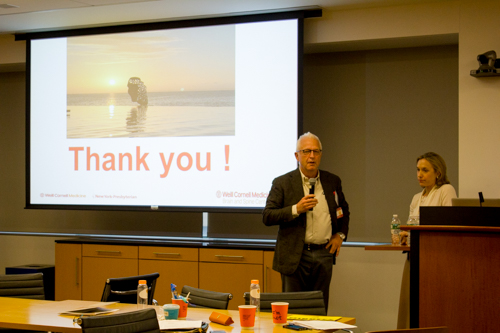
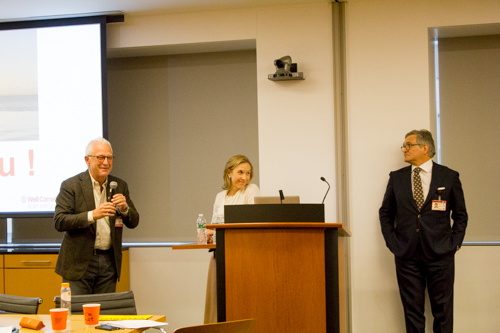
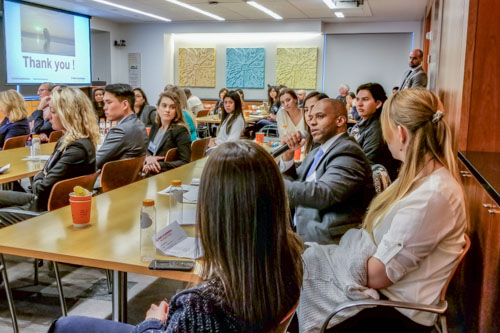
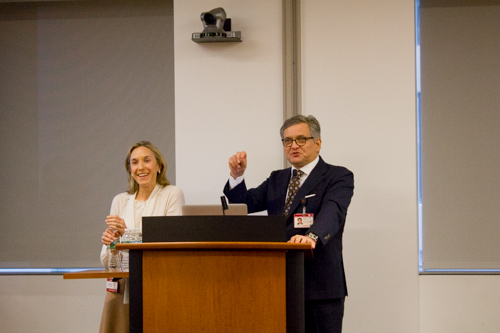
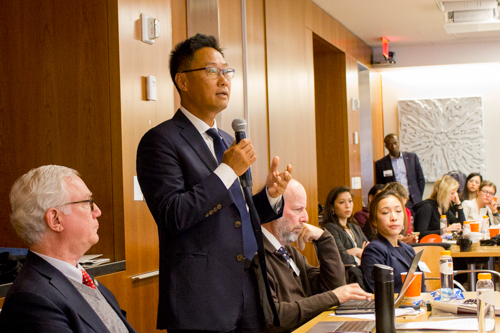
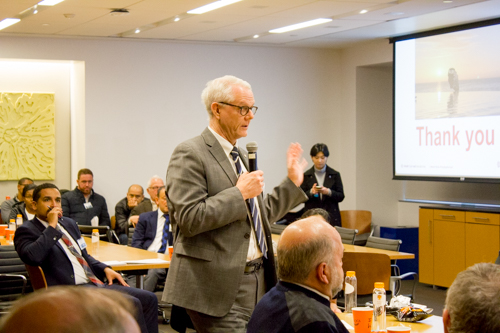
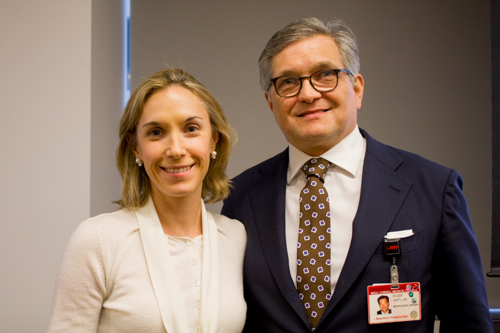
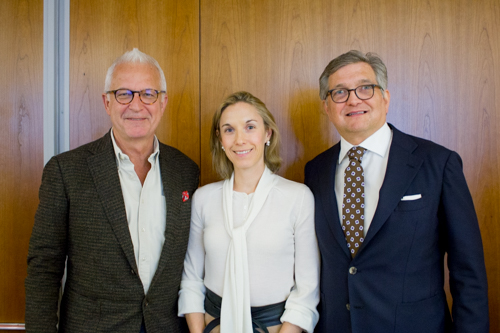
Global Neurosurgery: A Practical Symposium highlighted significant limitations in education, training and access to neurosurgery on a global scale. This gap results in unnecessary morbidity and mortality from neurosurgical conditions and, in turn, leads to a critical public health concern in many developing countries. The public health impact of this performance gap has been widely published.
While most historical global health initiatives have focused on improving primary care outcomes and access, more recent efforts have focused on surgical access. Over the past 5 to 10 years, there has been an increase in multi-institutional collaborations focusing on the prevalence of neurosurgical conditions, current outcomes, and creating educational training programs that lead to sustainable change. The majority of this work is taking place on Haiti and Tanzania, and there is now published data to support the need and potential success of these programs. The rates of neurosurgical disorders in these locations has been found to be as high as 16%, with a mortality rate as high as 33%. Both the Tanzania and Haiti experiences demonstrated significant increase in number and success of neurosurgical cases.
While significant progress has been made, there are still barriers to more widespread access, incomplete assessment of the success of independent, locally-performed surgeries following these programs, and a need to define future directions and methods to broaden the scope of these initiatives. We therefore plan to draw upon the existing data and bring together the groups involved in prior and current initiatives to identify keys to success and strategic plans to collaborate and work through barriers to increase sustainable access to neurosurgery through local training to improve outcomes and global public health.
The symposium consisted of lectures imparting the existing experience and state of global health in neurosurgery, review of barriers, group interaction to develop strategic plans by region, review of funding opportunities and sources, closing with future directions and definition of metrics for success. The attendees are currently working towards a unified plan to continue the work and momentum of Global Neurosurgery: A Practical Symposium.
The Agenda:
Friday, January 18, 2019
8:00 am Registration and Breakfast
8:30 am Welcome and Introductions: Roger Härtl, M.D. and Caitlin Hoffman, M.D., Augustine Choi, M.D., Steven J. Corwin, M.D., Philip E. Stieg, Ph.D., M.D., Chairman and Neurosurgeon-in-Chief
8:45-9:30am Keynote Address: “The Role of Surgery in Global Health” Walter Johnson, M.D.
Session I: Global Neurosurgery Today: Overview of Clinical Programs and Regional Needs
Each talk 10 minutes plus 5 minutes of Q&A and discussion
9:30am, Haiti, Barth A. Green, M.D.
9:45am, Tanzania, Hamisi K. Shabani, M.D.
10:00am, Vietnam (live stream), Walter Jean, M.D.
10:15am, Break
10:30am Uganda, Michael Haglund, M.D.
10:45am Volunteer Neurosurgery in Nepal and the Maldive Islands, Richard Wohns, M.D.
11:00am, Cambodia, Kee Park, M.D.
11:15 - 12:00 pm Luncheon Lecture
Reflections on the role of surgery in global health Daniel Fitzgerald, M.D.
Session II: Specific Challenges and Needs
(Each talk 10 minutes plus 5 minutes of Q&A and discussion)
12:00pm, Global Neurosurgery: Accelerating Progress through Partnerships, Gail Rosseau, M.D.
12:15pm, Spine surgery in East Africa: Challenges and needs, Nicephorus Rutabasibwa, M.D.
12:30pm Creating Neurosurgery Training in Haiti, John Ragheb, M.D.
12:45pm What can we do in NA/Europe to support GNS, Isabelle Germano, M.D.
Session III: Solutions and Successful Projects
(Each talk 10 minutes plus 5 minutes of Q&A and discussion)
1:00pm NED Foundation Model at Global Neurosurgery, Jose Piquer, M.D.
1:15pm, The Weill Cornell 6 step program in Tanzania, Roger Härtl, M.D.
1:30pm, Complex skull base surgery in resource limited settings, Antonio Bernardo, M.D.
1:45pm, Nursing Education in Global Neurosurgery Programs Karen March, RN
2:00pm, Strategy for Leading Change: The Global Neurosurgery Initiative at Harvard, Kee Park, M.D.
2:15pm, Developing freestanding hospitals, Barth Green, M.D.
2:30pm, Break
2:45pm, Building a subspecialty hospital in East Africa, Mohamed Janabi, M.D.
3:00pm, NIHR Global Health Research Group on Neurotrauma, Peter Hutchinson, M.D.
3:15pm, Education Based Ophthalmology Program Model in Tanzania, Donald D’Amico, M.D.
3:30pm, Neurosurgical Access on a Global Scale, Kiran T. Thakur, M.D.
3:45pm, Neurosurgical Bootcamps - Bolivia, Jared Ament, M.D.
4:00pm, Challenges and Opportunities for Global Clinical and Research Education, P. David Adelson, M.D.
4:15pm, Global Neuro: Education without Borders, Andres M. Rubiano M.D. and Linda Domeisen
Session IV: Organized Neurosurgery – What is happening and how can you get involved?
5:15pm, The Role of FIENS, Robert Dempsey, M.D.
5:30pm, The Role of WFNS, Isabelle Germano, M.D.
5:45pm, The Bogota Declaration in Global Neurosurgery, Andres M. Rubiano, M.D.
6:00pm, Organized Neurosurgery: Global Neurosurgery: The 20,000 foot view, Kee Park, M.D.
Saturday, January 19, 2019
8:00 am, Breakfast
Session V: Key Failures, Lessons Learned
(Each talk 10 minutes with 5 minutes Q&A)
8:15am, Barth A. Green, M.D.
8:30am, Michael Haglund, M.D.
8:45am, Roger Härtl, M.D.
9:00am, Robert J. Dempsey, M.D.
9:15am, Kee Park, M.D.
9:30am, Halinder Mangat, M.D.
9:45-10:30am, Oral Presentations
10:30am, Break
Session VI: How to get started in Global Neurosurgery – How we did it
(Each talk 15 minutes plus 5 minutes of Q&A and discussion)
10:50am, How do you start Global Neurosurgery work? Michael Haglund, M.D.
11:10am, Where from here? “An Untapped Resource: Preparing Neurosurgeons for a ‘Third Career’”, Gail Rosseau, M.D.
11:30am, The next step: How do we support a new Neurosurgery Graduate in the developing world? Robert J. Dempsey, M.D.
11:50am, How to build a freestanding hospital Barth A. Green M.D.
12:10pm, Building Healthcare capacity in Ukraine: Focus on Needs and issues in Neurosurgery, James Rutka, M.D.
12:30pm, How do you develop research protocols in GNS, Rikin Trivedi, M.D.
12:50pm, Management of Severe TBI in Tanzania: What Can We Learn? Halinder Mangat, M.D.
1:10pm, Reflections on how to build a successful Brain and Spine center in evolving communities, Roger Härtl, M.D. and Philip E. Stieg, Ph.D., M.D.
1:30pm, Group Discussion: Where to go from here? Define collaboration going forward, Moderated by Roger Härtl, M.D. and Caitlin Hoffman, M.D.
1:45pm Course concludes